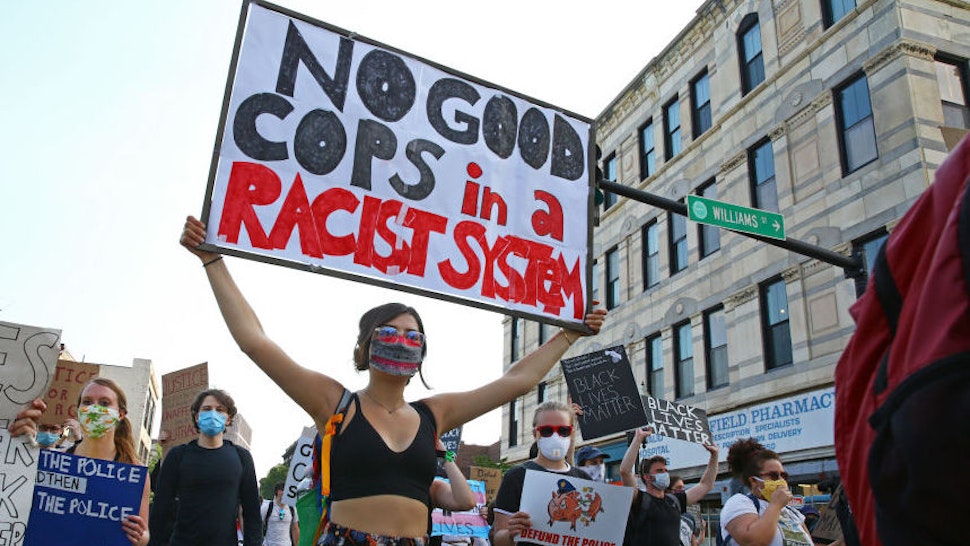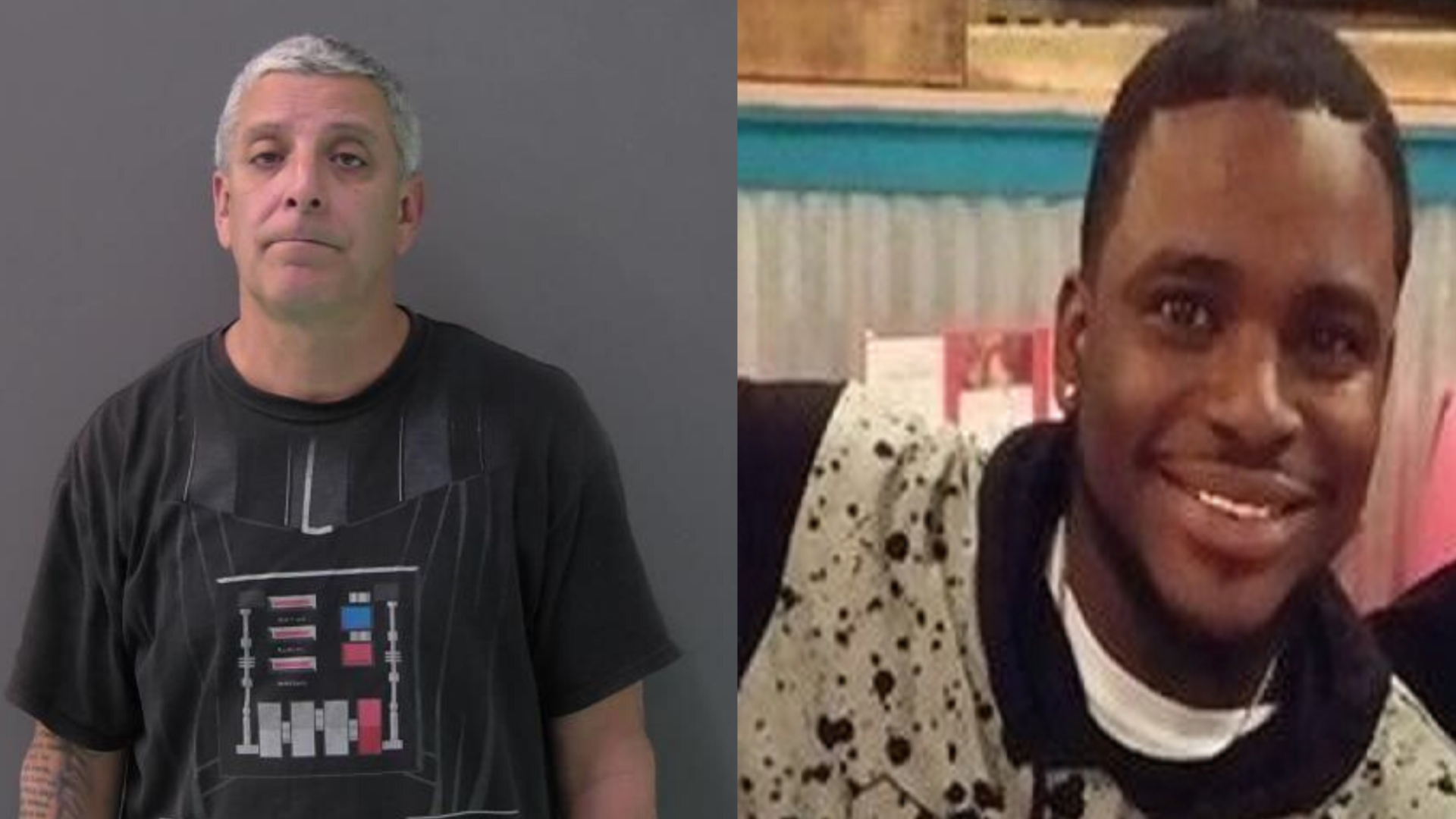 |
| Pat Greenhouse/The Boston Globe via Getty Images |
I have already made the case that systemic racism in law enforcement is a myth. The claim that racist police are prowling the street searching for black men to murder is absurd on its face, and even absurder when you look at the facts. It is by now well publicized — at least in some corners — that, despite all of the panicking and rioting over race-based police brutality, only a very small number of unarmed black men are killed by police each year. But an even closer look at the data, and a study of each “unarmed” killing, reveals that the real number of unjustified police shootings of actual unarmed people — black, white, or any other race — is much smaller still.
First, to put the statistics into perspective, it’s helpful to begin with the overall number of arrests. According to the DOJ, police make about 10 million arrests each year. As a rough average, 7 million of the arrested suspects are white and 3 million are black. Out of that number, last year, 25 unarmed white people were killed by police, compared to 14 unarmed black people, according to the Washington Post database of police shootings. That means about .0004 percent of all blacks arrested were killed while unarmed. The percentage for whites is comparable. In total, 1,000 people were shot and killed by police in 2019, the vast majority of whom were armed. Still, that’s a mere .01 percent of all arrests.
Now, the numbers aren’t exactly the same every year, of course. For example, the Post says 22 unarmed black people were killed in 2017, compared with 31 white people. But the percentage doesn’t change very much. Also, we should acknowledge that the numbers vary depending on what source you use. USA Today cites a crowdsourced database that has 25 unarmed black killings in 2019. However a look at the individual cases in that database shows that they count as “police shootings” any shooting involving a police officer, on or off duty. Violence stemming from domestic disputes or off-duty bar fights make it onto their list. This is not how you determine whether there is a systemic problem in law enforcement. We need to look specifically at the cases of uniformed police officers shooting unarmed black people in the line of duty. We know that number is already quite low. But a closer inspection of the actual cases shows that it’s even lower than we think. Indeed, it appears that the whole category of “unarmed” shootings is severely misleading
I looked up all 14 cases included in the Post’s 2019 database. A few are straightforwardly unjustified. Atatiana Jefferson was shot while sitting inside her mother’s home. The officers were responding to a call from a neighbor who was concerned that there’d been a break in at the residence. Officer Aaron Dean peered into a window in the dark, spotted Jefferson, screamed for her to show her hands, and then shot her without identifying himself as a police officer. Dean has been charged with murder. It’s a horrible case, and outrageous behavior by Dean, but it hardly amounts to systemic racism. There’s no reason to think that this is even a case of isolated racism. Dean, it seems, could hardly see who he was shooting, which is what makes it an egregiously unjustified act on his part, but also probably not racism.

Officer Carmen DeCruz in Texas fatally shot a man named Michael Dean. Body cam footage apparently shows that DeCruz accidentally discharged his firearm while trying to confiscate Dean’s car keys during a traffic stop. DeCruz has been charged with manslaughter. Both of these cases are clearly unjustified, and both officers have received criminal charges appropriate for the offense. Most of rest of the cases, however, are either far from clear cut, or clear cut in the other direction.
Christopher Whitfield was shot allegedly during a scuffle with police after trying to steal from a convenience store. The sheriff’s office claimed the shooting was accidental. A grand jury cleared the officer of any criminal wrongdoing.Read the rest from Matt Walsh HERE.
If you like what you see, please "Like" us on Facebook either here or here. Please follow us on Twitter here.

No comments:
Post a Comment